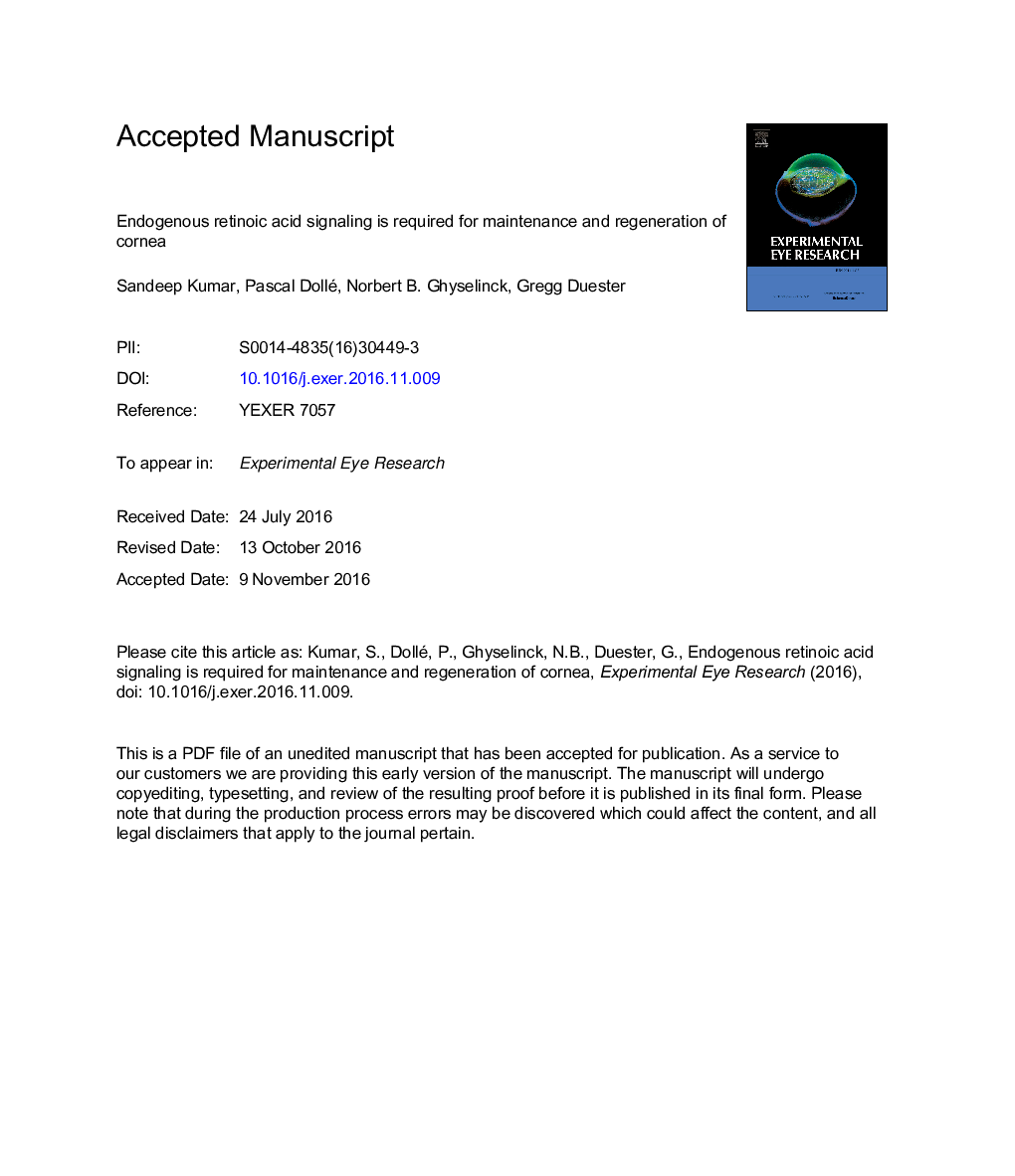| Article ID | Journal | Published Year | Pages | File Type |
|---|---|---|---|---|
| 5704145 | Experimental Eye Research | 2017 | 18 Pages |
Abstract
Retinoic acid (RA) is a biologically active metabolite of vitamin A (retinol) that serves as an important signaling molecule in orchestrating diverse developmental processes including multiple roles during ocular development. Loss-of-function studies using gene knockouts of RA-synthesizing enzymes encoded by Aldh1a1, Aldh1a2, and Aldh1a3 (also known as Raldh1, Raldh2, and Raldh3) have provided valuable insight into how RA controls eye morphogenesis including corneal development. However, it is unclear whether endogenous RA is required for maintenance and regeneration of adult cornea. Here, we investigated the role of Aldh1a genes in the adult cornea using a novel conditional Aldh1a1,2,3-flox/flox;Rosa26-CreERT2 loss-of-function mouse model to determine the biological function of RA. Our findings indicate that loss of RA synthesis results in corneal thinning characterized by reduced thickness of the stromal layer, impaired corneal epithelial cell proliferation, and increased apoptosis. Corneal thinning in Aldh1a-deficient mice was significantly rescued by RA administration, indicating an important role of endogenous RA signaling in adult corneal homeostasis and regeneration. Thus, Aldh1a1,2,3-flox/flox;Rosa26-CreERT2 mice provide a useful model for investigating the mechanistic role of RA signaling in adult corneal maintenance and could provide new insights into therapeutic approaches for controlling corneal repair to prevent vision loss.
Related Topics
Life Sciences
Immunology and Microbiology
Immunology and Microbiology (General)
Authors
Sandeep Kumar, Pascal Dollé, Norbert B. Ghyselinck, Gregg Duester,
